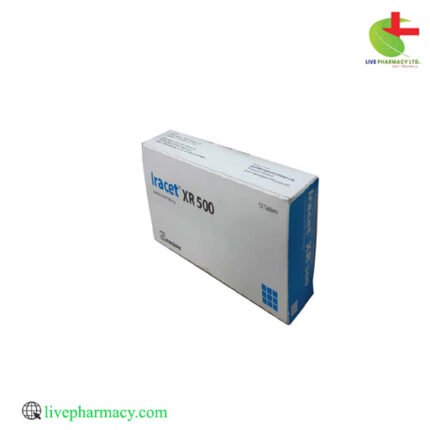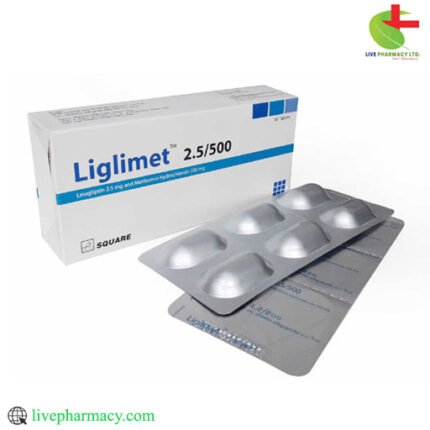Norpill 1
70.00৳ Box
- Norpill 1 offers swift emergency contraception for women.
- Formulated with levonorgestrel, it prevents fertilization following unprotected intercourse.
- Available in two variants: 1.5 mg and 0.75 mg tablets.
- Should be taken within 72 hours of intercourse, but not to be used as regular contraception.
- Consultation with a healthcare professional is recommended for personalized guidance.
 Brand
Brand
|
Square Pharmaceuticals PLC |
|---|---|
 Generics
Generics
|
Levonorgestrel |
Indications
Emergency contraception serves as a vital intervention to prevent fertilization following unprotected intercourse.
This form of contraception should ideally be utilized as promptly as possible, preferably within a 12-hour window and no later than 72 hours (3 days) after unprotected sexual activity, particularly in the following scenarios:
- After engaging in sexual intercourse without using a contraceptive method by either partner.
- In instances where three consecutive contraceptive pills have been missed.
- When a partner’s condom breaks, slips off, is improperly removed, or forgotten.
- Concerns regarding the expulsion of an intrauterine device.
- Displacement of a vaginal diaphragm or contraceptive cap, or premature removal.
- Doubts about the effectiveness of the withdrawal method or engaging in sexual activity during the fertile period while using the rhythm method.
- Following incidents of sexual assault.
Composition
1.5 mg Variant: Each tablet comprises 1.5 mg of levonorgestrel, belonging to the progestogen group. The package contains one round, white tablet.
0.75 mg Variant: Each tablet contains 0.75 mg of levonorgestrel and is part of the progestogen group. The package includes two round, white tablets.
Description
Norpill 1 stands as an emergency contraceptive designed for women, to be administered within 72 hours of unprotected intercourse. It should not be substituted for regular birth control. Also known as the Post Coital Pill and Morning After Pill, its active ingredient is Norpill 1.
Menstrual Cycle and Contraception
The menstrual cycle spans the time between two menstrual periods, typically 28 days but subject to significant variation. Ovulation, the release of an egg from one of the ovaries, typically occurs midway through the cycle.
Contraceptive methods aim to prevent ovulation, fertilization, or the implantation of a fertilized egg. Emergency contraception targets ovulation or implantation, particularly effective when administered before ovulation.
Dosage
For the 1.5 mg tablet: One tablet should be taken within 12 hours and no later than 72 hours after unprotected intercourse, at any point in the menstrual cycle.
For the 0.75 mg tablet: The first tablet should be taken within 72 hours, with the second following 12 hours later. It should be administered within 48 hours of intercourse, not exceeding 72 hours.
Following emergency contraception, local contraceptive methods (condoms, spermicide, cervical cap) should be used until the next menstrual period. Continuation of regular hormonal contraception is not contraindicated.
Administration
Oral consumption with water.
Interaction
Certain anticonvulsants and medications such as rifampicin and griseofulvin may reduce or negate the effectiveness of emergency contraception.
Contraindications
Avoid in cases of hypersensitivity to levonorgestrel or any excipients.
Side Effects
Possible adverse effects include nausea, vomiting, dizziness, fatigue, headache, abdominal pain, breast tenderness, and post-medication bleeding.
Pregnancy & Lactation
Not suitable for existing pregnancies. While breastfeeding is possible, levonorgestrel is secreted into breast milk, so nursing should be timed before each tablet intake, skipping the feed following administration.
Precautions & Warnings
Emergency contraception should be a rare recourse, not replacing regular contraception. It does not safeguard against all pregnancies, and hormonal overdosing isn’t advisable for regular use. Abnormal bleeding or menstrual delays should prompt a pregnancy test. Not recommended in certain medical conditions.
Overdose Effects
No acute toxicity demonstrated with multiple doses, but efficacy may be compromised with missed doses.
Therapeutic Class
Emergency Contraceptive Pill, Oral Contraceptive Preparations.
Storage Conditions
Keep in original packaging, away from children, in cool, dry conditions below 30°C, adhering to the expiry date.













Reviews
There are no reviews yet.